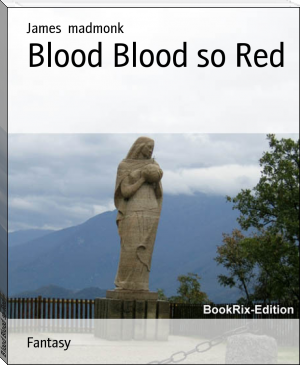Robin Hood, J. Walker McSpadden [book recommendations for teens .TXT] 📗

- Author: J. Walker McSpadden
Book online «Robin Hood, J. Walker McSpadden [book recommendations for teens .TXT] 📗». Author J. Walker McSpadden
All this while the stranger had been eyeing Robin attentively and listening to his voice as though striving to recall it.
“If I mistake not,” he said slowly at last, “you are that famous outlaw, Robin Hood of Barnesdale.”
“You say right,” replied Robin; “but my fame has been tumbling sadly about in the dust to-day.”
“Now why did I not know you at once?” continued the stranger. “This battle need not have happened, for I came abroad to find you to-day, and thought to have remembered your face and speech. Know you not me, Rob, my lad? Hast ever been to Gamewell Lodge?”
“Ha! Will Gamewell! my dear old chum, Will Gamewell!” shouted Robin, throwing his arms about the other in sheer affection. “What an ass I was not to recognize you! But it has been years since we parted, and your gentle schooling has polished you off mightily.”
Will embraced his cousin no less heartily.
“We are quits on not knowing kinsmen,” he said, “for you have changed and strengthened much from the stripling with whom I used to run foot races in old Sherwood.”
“But why seek you me?” asked Robin. “You know I am an outlaw and dangerous company. And how left you mine uncle? and have you heard aught of late of—of Maid Marian?”
“Your last question first,” answered Will, laughing, “for I perceive that it lies nearest your heart. I saw Maid Marian not many weeks after the great shooting at Nottingham, when you won her the golden arrow. She prizes the bauble among her dearest possessions, though it has made her an enemy in the Sheriff’s proud daughter. Maid Marian bade me tell you, if I ever saw you, that she must return to Queen Eleanor’s court, but she could never forget the happy days in the greenwood. As for the old Squire, he is still hale and hearty, though rheumatic withal. He speaks of you as a sad young dog, but for all that is secretly proud of your skill at the bow and of the way you are pestering the Sheriff, whom he likes not. ‘Twas for my father’s sake that I am now in the open, an outlaw like yourself. He has had a steward, a surly fellow enough, who, while I was away at school, boot-licked his way to favor until he lorded it over the whole house. Then he grew right saucy and impudent, but my father minded it not, deeming the fellow indispensable in managing the estate. But when I came back it irked me sorely to see the fellow strut about as though he owned the place. He was sly enough with me at first, and would brow-beat the Squire only while I was out of earshot. It chanced one day, however, that I heard loud voices through an open window and paused to hearken. That vile servant called my father ‘a meddling old fool,’ ‘Fool and meddler art thou thyself, varlet,’ I shouted, springing through the window, ‘that for thy impudence!’ and in my heat I smote him a blow mightier than I intended, for I have some strength in mine arm. The fellow rolled over and never breathed afterwards, I think I broke his neck or something the like. Then I knew that the Sheriff would use this as a pretext to hound my father, if I tarried. So I bade the Squire farewell and told him I would seek you in Sherwood.”
“Now by my halidom!” said Robin Hood; “for a man escaping the law, you took it about as coolly as one could wish. To see you come tripping along decked out in all your gay plumage and trolling forth a roundelay, one would think you had not a care in all the world. Indeed I remarked to Little John here that I hoped your purse was not as light as your heart.”
“Belike you meant head,” laughed Will; “and is this Little John the Great? Shake hands with me, an you will, and promise me to cross a staff with me in friendly bout some day in the forest!”
“That will I!” quoth Little John heartily. “Here’s my hand on it. What is your last name again, say you?”
“‘Tis to be changed,” interposed Robin; “then shall the men armed with warrants go hang for all of us. Let me bethink myself. Ah!—I have it! In scarlet he came to us, and that shall be his name henceforth. Welcome to the greenwood, Will Scarlet!”
“Aye, welcome, Will Scarlet!” said Little John; and they all clasped hands again and swore to be true each to the other and to Robin Hood’s men in Sherwood Forest.
CHAPTER VII HOW ROBIN HOOD MET FRIAR TUCK The friar took Robin Hood on his back, Deep water he did bestride, And spake neither good word nor bad, Till he came at the other side.
In summer time when leaves grow green, and flowers are fresh and gay, Robin Hood and his merry men were all disposed to play. Thus runs a quaint old ballad which begins the next adventure. Then some would leap and some would run and some try archery and some ply the quarter-staff and some fall to with the good broad sword. Some again would try a round at buffet and fisticuff; and thus by every variety of sport and exercise they perfected themselves in skill and made the band and its prowess well known throughout all England.
It had been a custom of Robin Hood’s to pick out the best men in all the countryside. Whenever he heard of one more than usually skilled in any feat of arms he would seek the man and test him in personal encounter—which did not always end happily for Robin. And when he had found a man to his liking he offered him service with the bold fellows of Sherwood Forest.
Thus it came about that one day after a practice at shooting, in which Little John struck down a hart at five hundred feet distance, Robin Hood was fain to boast.
“God’s blessing on your heart!” he cried, clapping the burly fellow on the shoulder; “I would travel an hundred miles to find one who could match you!”
At this Will Scarlet laughed full roundly.
“There lives a curtall friar in Fountain’s Abbey—Tuck, by name—who can beat both him and you,” he said.
Robin pricked up his ears at this free speech.
“By our Lady,” he said, “I’ll neither eat nor drink till I see this same friar.”
And with his usual impetuosity he at once set about arming himself for the adventure. On his head he placed a cap of steel. Underneath his Lincoln green he wore a coat of chain metal. Then with sword and buckler girded at his side he made a goodly show. But he also took with him his stout yew bow and a sheaf of chosen arrows.
So he set forth upon his way with blithe heart; for it was a day when





Comments (0)